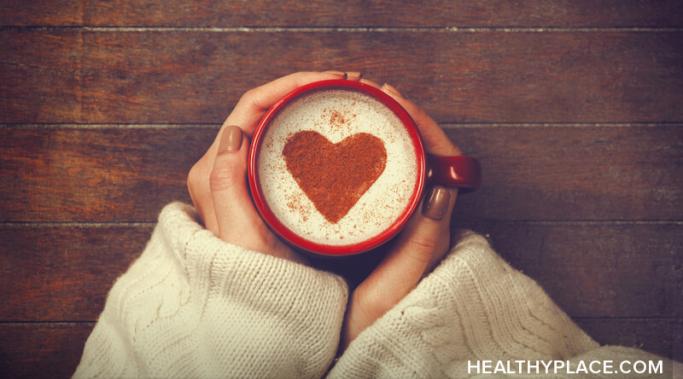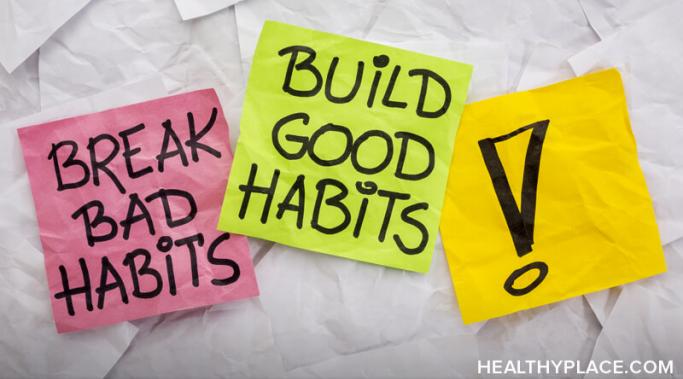For seven years, I was privileged to contribute to the "Getting Through Tough Times" blog on HealthyPlace, but now this author is saying goodbye. This mental health community has been my home. It was a safe place to share my journey through difficult times. I am very sad to be leaving. But before I do, I would like to share this post expressing what HealthyPlace has meant to me.
Getting Through Tough Times
I've found that self-care for premenstrual syndrome is critical. Hormonal changes from premenstrual syndrome (PMS) cause me to feel tired, bloated, sore, depressed, and sometimes angry. There are days when I can barely get out of bed. During this time, I feel guilty for not being productive. However, to manage, it is important to be kind to myself and practice self-care for PMS symptoms. Here are six ways I take care of myself during my period.
Everyone has habits -- both healthy and unhealthy habits. Healthy habits might be drinking enough water throughout the day. Unhealthy might be drinking excessively every night. Lately, I am finding that some of my past behaviors and thought patterns have contributed to some of my unhealthy habits today. To learn more about my discoveries and experiences with habits, continue reading this blog post.
I've found Valentine's Day affirmations helpful. For some people, Valentine's Day is full of flowers, candy hearts, thoughtful cards, fancy dinners, and romance. For others, it is a fun day to celebrate with family and friends. But for people struggling with depression or anxiety, this holiday can bring about feelings of loneliness, anger, and envy. It can be a reminder of heartbreak and loss. If you are going through a difficult time right now, here are some Valentine's Day affirmations for you.
The creation of art can help with depression. During the cold season, when I'm stuck indoors, it becomes tempting to spend a lot of time sleeping. This only makes me feel depressed. To combat this, I try to find fun activities that challenge my mind. This year, I discovered joy in diamond painting. To learn how this artistic hobby helps with depression, read on.
A few weeks ago, a friend asked me to edit an article that caused great stress and anxiety. I agreed to do this, not knowing how complex the text would be. After a few minutes, I stressed out about why I couldn't comprehend the content. My stress soon morphed into anxiety, pounding my head with thoughts like, "I'm so stupid, and If I can't edit this piece, my friend will be disappointed." I was tempted to give up and apologize to my friend. But before I did, I remembered that my stress and anxiety didn't have to consume me. To learn more about my experience with stress and anxiety and how I have learned to deal with them, continue reading this post.
I'm focusing on not drinking soda. Many people have different habits and addictions that they turn to during stressful times. Some common ones include social media, Netflix, alcohol, food, and drugs. In this post, I discuss how my habit of drinking Diet Coke affects my life. I also share four ways that I plan on using to stop drinking soda.
Self-awareness matters when dealing with anxiety. In the midst of anxiety, my mind creates a mess of thoughts. I cannot figure out when they started, how they began, or how to end them. This struggle sometimes leads to unhealthy temptations and behaviors. After nine years of anxiety treatment, I learned a very helpful skill to understand and change my thoughts and my behaviors when I'm anxious: self-awareness. In this post, I discuss four ways that my self-awareness around anxiety has improved.
Anticipatory anxiety is more severe than stressing out about a current situation. Clinical psychologist Sally Winston and master clinician Martin Seif define anticipatory anxiety as a fear of failure and other bad things that might happen in the future. As a result of anticipatory anxiety, many people avoid important tasks and new things. To learn about my experience with anticipatory anxiety and change and how I managed it, continue reading this post.
At some point, everyone experiences some degree of anger and sadness. Some people can control those emotions easily. For others, self-control is much more difficult. My anxiety and depression have caused me to lose control over sadness and anger verbally. In this post, I discuss my triggers for anger and sadness and how I am learning to deal with them.









